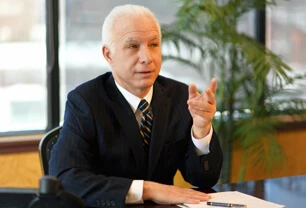Our New York Veterans Disability Benefits Law Firm Helps You Apply for Benefits
One of the most challenging aspects of applying for veterans disability benefits is proving to the Department of Veterans Affairs (DVA) that your injuries or illnesses are connected to your military service and that they affect your ability to work significantly enough to warrant compensation. It is not enough to merely show that you have a disability; you must show that it was actually caused or exacerbated by your service. To do so often requires a great deal of medical evidence, which the VA will extensively scrutinize. When applying for veterans disability benefits, a lawyer at a New York veterans disability benefits law firm can help you to gather the necessary medical evidence to present the strongest claim possible.
General Evidentiary Requirements for Your VA Claim
To support your claim, the VA accepts the following types of evidence:
- VA medical records concerning your claimed illnesses or injuries or that show your rated disability has worsened
- Private medical records and hospital reports concerning claimed illnesses or injuries or that show your disability has gotten worse
- Supporting statements from family members, friends, clergy members, law enforcement personnel, or those you served with that attest to your claimed condition, how and when you sustained your injuries, or how they have worsened.
Our New York Veterans Disability Benefits Law Firm Explains Common Records and Evidence Used in Benefits Claims
The VA’s evidentiary categories are broad and can include many different types of documents, some of the most common of which are highlighted below. For more information about any of the documents discussed or how to obtain them, please contact a New York veterans disability benefits law firm.
Claims Files
A claims file (commonly known as a “C-File”) is a collection of records the VA maintains in connection to your disability claim. It is often thousands of pages long, containing a wide range of documents, including your DD-214, service records, post-service records, application for benefits, denial letters, ratings decisions, code sheets, medical records, appeals, and VA correspondence. When applying for benefits, review your C-File, extract any relevant documents, and explain why they support your claim — do not assume that your examiner will do this research and analysis for you.
Medical Records: Our New York Veterans Disability Benefits Law Firm Can Help You Gather These
When applying for veterans disability benefits, it is better to be over-inclusive than under-inclusive with your medical records and history. This means you should submit everything you have and everything that you can gain access to, including records of treatment by both VA doctors and private doctors. You should support every mental or physical condition you claim with diagnostic and treatment records.
Doctor Reports
In many cases, doctors will write extensive reports concerning their opinion as to whether your illness or injury is service-service related and exactly how your service contributed to or exacerbated your conditions. Such reports can be immensely helpful to your application, as they are official medical opinions establishing a nexus between your service and your injury. If you have secondary conditions —for example, a service-related neck injury that also causes arm and hand pain — a doctor’s report can link all of your conditions together.
Psychological Evaluations
If you are applying for veterans disability benefits for a mental condition, you should include any psychological evaluations you have undergone. A mental health professional will be able to describe your mental disability in detail, document its severity, and link it to any service-related incidents that may have caused it.
Lay Statements
A lay statement is a statement from your family, friends, coworkers, and clergy that attests to your condition and how it affects your daily life. When requesting a lay statement, instruct the writer to consider your condition in the context of your military service, with particular emphasis on how your service affected your life. Lay statements can be particularly helpful as supporting evidence for mental conditions, as the people you spend the most time with are ideally suited to explain post-service changes in your mental wellbeing.
Buddy Statements
A buddy statement is similar to a lay statement, but is written by someone you served with. While lay statements are ideal for attesting to your general physical and mental state, buddy statements are particularly useful for describing certain military-related phenomena about which lay persons may be unaware, such as hazing incidents, assault and harassment, injuries sustained during combat, the nature of enemy attacks, the psychological burden of service, and more. Buddy statements can also help to fill in gaps in your medical records if official documentation is missing.
Issue-Specific Evidence for Your New York VA Claim
The VA requires special types of evidence if your application involves certain issues, such as:
- Post-Traumatic Stress Disorder (PTSD): A Statement in Support of Claim for Post-Traumatic Stress Disorder (VA Form 21-0781); or, if you are claiming PTSD due to assault, a Statement in Support of Claim for Service Connection for Post-Traumatic Stress Disorder Secondary to Personal Assault (VA Form 21-0781a).
- Individual unemployability: Medical evidence that shows that a service-connected disability prevents you from getting or keeping substantially gainful employment; a Veteran’s Application for Increased Compensation Based on Unemployability (VA Form 21-8940); a Request for Employment Information in Connection with Claim for Disability Benefits (VA Form 21-4192), completed by your last employer.
- VA Title 38 § U.S.C. 1151 claims: Evidence that action by the VA (e.g., carelessness or negligence, a medical or surgical treatment, a health exam, a vocational rehabilitation course, etc.) led to an added disability or caused your injury or disease to get worse.
- Aid and attendance benefits: Evidence that you require extensive assistance with the activities of daily living, such as bathing, feeding, dressing, etc.
Contact a New York Veterans Disability Benefits Law Firm for Further Assistance
Collecting evidence for a veterans disability claim can be challenging, but an experienced attorney can help you obtain the necessary documentation. To get started with a claim, please contact a veterans attorney at the New York veterans disability benefits law firm of Turley, Redmond and Rosasco by using our online form or calling us at 877-693-2529, 516-745-5666 (Garden City), 631-582-3700 (Ronkonkoma), or 631-399-0400 (Shirley).












